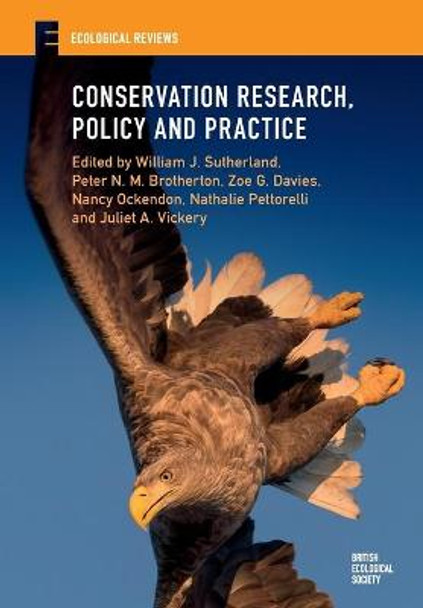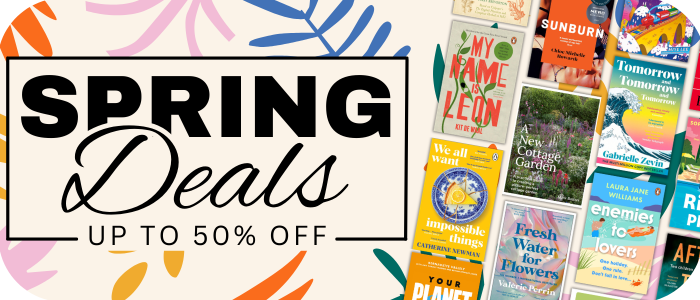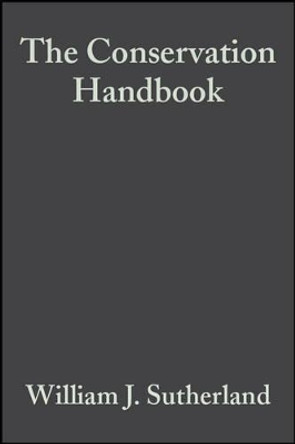Description
Discover how conservation can be made more effective through strengthening links between science research, policy and practice. This title is also available as Open Access on Cambridge Core.
About the Author
William J. Sutherland is Miriam Rothschild Chair in Conservation Biology, University of Cambridge. He is an Honorary Member and previous President of the British Ecological Society. He is involved in horizon scanning, agenda setting and improving practice. Peter N. M. Brotherton is a Director at Natural England, the official nature conservation agency for England. He has a particular interest in the interface between conservation science, policy and practice. He was lead advisor to the UK government on the England Biodiversity Strategy (2011) and co-authored the influential 'Making Space for Nature' report. Zoe G. Davies is Professor of Biodiversity Conservation, University of Kent. She has worked on applied projects in the UK, across Europe, Chile, Guyana, Kenya, Madagascar, Indonesia, Malaysia and Singapore. Her research involves integrating natural and social science disciplines to answer important questions regarding how we should conserve the natural environment. Nancy Ockendon is the Science Coordinator of the Endangered Landscapes Programme, Cambridge Conservation Initiative, where she aims to ensure the more effective use and generation of scientific evidence in conservation projects. She is also interested in improving communication between scientists, practitioners and policy makers. Nathalie Pettorelli is Senior Research Fellow, Zoological Society of London. She has published four books and over 150 articles on the topic of biodiversity monitoring and wildlife management. She is a senior editor for Journal of Applied Ecology, the UK representative to GEO Programme Board, and a member of the British Ecological Society Policy Committee. Juliet A. Vickery is Head of International Research, RSPB Centre for Conservation Science, Bedfordshire. She is an Honorary Research Fellow in the Conservation Science Group, University of Cambridge; Chair of the Policy Committee of the British Ecological Society; and President of the British Ornithologists' Union.
Reviews
'Conservation Research, Policy and Practice is an excellent handbook on how to conduct research in conservation and then translate it into an impactful outcome. It explores the complexity of horizon scanning and interacting with policy, while providing clear guidance on how to develop a Theory of Change. With an increasingly greater focus on evidence-informed policy and practice, researchers need concrete examples on how to generate and synthesise research findings, and then to communicate these findings to decision-makers; all while recognising that a degree of uncertainty is inherent to all policy-making. This book will aid anyone wishing for their research to have an impact, particularly in conservation but also any interdisciplinary pursuit.' Dr Grant Hill-Cawthorne, Head of the Parliamentary Office of Science and Technology
'Conservation practitioners, policy makers and researchers alike will find much to interest them in this excellent book. Ecological systems are complex and sometimes unpredictable so the more clues we have to how a particular conservation management intervention might play out in the real world the greater likelihood of achieving the outcomes we are looking for. Too often, proposals for conserving a species, habitat or ecosystem are subject to confirmation bias, erroneous assumptions and flimsy evidence bases. This book challenges conservationists not only to do better but equips them with the tools to do so. It is an important contribution to the urgent planetary need to address nature's decline and loss.' Jonathan Hughes, Chief Executive Officer, WCMC, UN Environment Programme World Conservation Monitoring Centre
'In the Anthropocene, with the dual biodiversity and climate crises, it is imperative that conservation research results have impact. This matters to researchers, to research funders, to society and to our planet. This book illustrates that while research evidence is essential, it is only part of the mix needed to deliver impact through influencing policy, practice, and societal change. Getting evidence used involves a complex interplay between those that gather it and those that develop and implement policy, or otherwise change their practices. This requires a range of different approaches and communication techniques, and the development of strong and trusting collaborative relationships with relevant stakeholders. While there is no panacea, there are some general principles. This excellent and timely book provides a valuable tool that illustrates those principles, providing examples from a broad diversity of experience and situations.' Debbie Pain, Honorary Professor, School of Biological Sciences, University of East Anglia and Honorary Research Fellow, Department of Zoology, University of Cambridge
'... this book emphasizes how close working relationships among scientists, policy makers, and practitioners are increasingly critical to fulfilling conservation goals and to broadening the impacts of societal benefits. This compilation of case studies and opinion pieces provides a valuable resource for conservation researcher's intent on engaging with both policy and practice.' R. A. Delgado Jr., Choice
Book Information
ISBN 9781108714587
Author William J. Sutherland
Format Paperback
Page Count 368
Imprint Cambridge University Press
Publisher Cambridge University Press
Weight(grams) 760g
Dimensions(mm) 247mm * 175mm * 18mm







